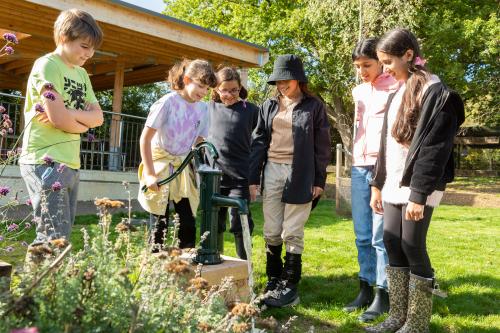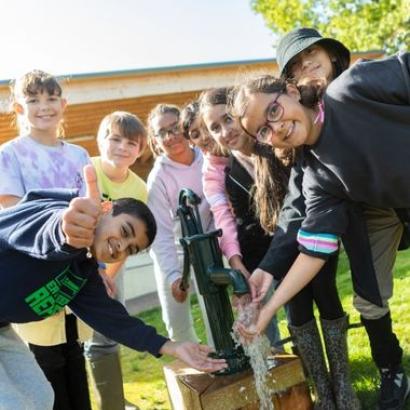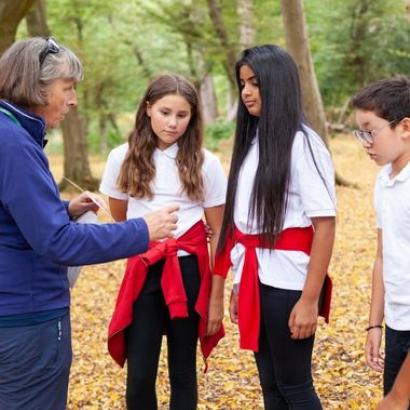

Water Sustainability
Water Sustainability
Students will learn about the effects of climate change on water in the environment through a variety of games and activities. They will investigate how the permeability of different surfaces affects urban flooding. Students will explore some of the sustainable features which help us to reduce our green-house gas emissions in the Centre. They will have the opportunity to demonstrate their understanding of climate action through an achievable personal behaviour change.
Learning objectives
- To understand the science of climate change and how this impacts precipitation patterns.
- To understand the science of climate change and how the Centre is trying to reduce it carbon emissions and impact on climate change.
- To investigate how different surfaces have different permeability and evaluate those findings while considering urban flooding.
- To connect their findings with water issues in their locality.
- To demonstrate their understanding of climate action through an achievable personal behaviour change.
National curriculum links
Science
Properties and changes of materials
- Compare and group together everyday materials based on their properties, including their hardness, solubility, transparency, conductivity (electrical and thermal), and response to magnets.
- Use knowledge of solids, liquids, and gases to decide how mixtures might be separated, including through filtering, sieving, and evaporating.
- Give reasons, based on evidence from comparative and fair tests, for the uses of everyday materials, including metals, wood, and plastic.
Working scientifically
- Planning different types of scientific enquiries to answer questions, including recognising and controlling variables where necessary.
- Taking measurements, using a range of scientific equipment, with increasing accuracy and precision, taking repeat readings when appropriate.
Geography
Human and physical geography
- Describe and understand key aspects of physical geography, including climate zones, biomes and vegetation belts, rivers, mountains, volcanoes and earthquakes, and the water cycle.
- Describe and understand key aspects of human geography, including types of settlement and land use, economic activity including trade links, and the distribution of natural resources including energy, food, minerals, and water.
PSHE
- To understand the importance of respecting and protecting the environment.



